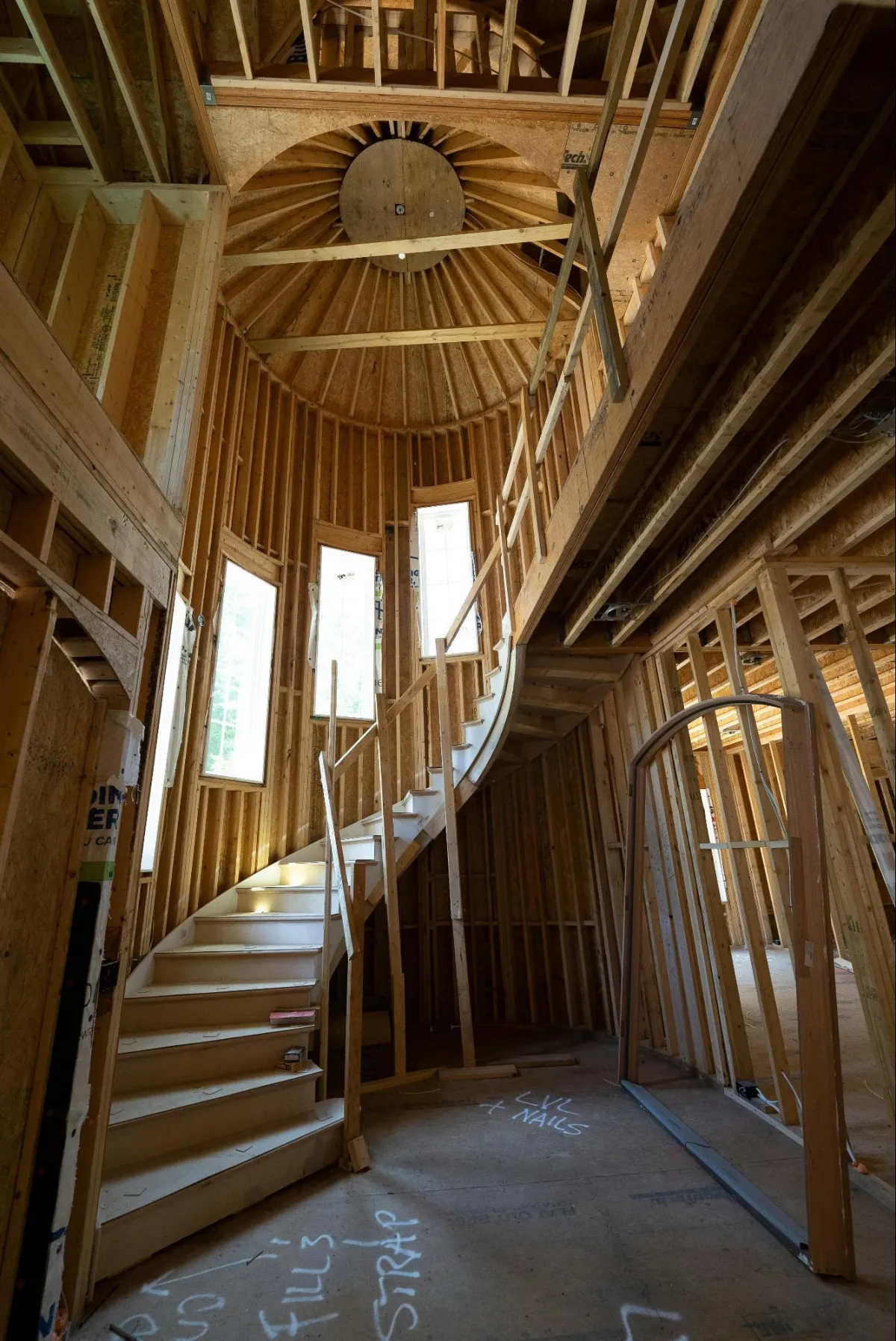
10 Essential Tips for Quality Custom Home Construction
Building a custom home can be exciting, but ensuring quality in construction is crucial. Many customers worry about meeting project expectations and securing the right help, such as finding skilled electricians and reliable lawyers. This article will provide essential tips, including defining clear expectations with your builder and implementing quality control measures throughout the process. By following these guidelines, readers can avoid common pitfalls, protect their investments, and achieve their dream home without unnecessary stress.
Key Takeaways
Quality construction significantly affects the longevity and value of a custom home
Clear communication between homeowners and builders fosters trust and project success
Regular inspections at key milestones ensure workmanship meets established standards
Detailed project specifications help avoid misunderstandings and costly changes during construction
Understanding contract terms protects homeowners’ investments and ensures quality throughout the process
Understand the Importance of Quality in Custom Home Construction

Quality greatly influences the longevity and value of a custom-built home. Poor workmanship can lead to common issues that diminish a property's worth. Trusting a skilled custom home builder ensures a smooth process, while a general contractor's fee reflects their expertise. Understanding these factors sets the stage for a successful construction project.
Recognize the Impact of Quality on Longevity and Value
Quality plays a significant role in the longevity and value of a custom home. When homeowners prioritize high craftsmanship in their construction contracts, they can avoid issues that may arise from poor workmanship. Choosing reliable subcontractors and ensuring they use quality materials can turn a house into a true vehicle of comfort and security for years to come.
Here are some key reasons why quality matters:
The durability of materials impacts the lifespan of the home.
Quality construction improves energy efficiency, lowering utility bills.
High-quality finishes and features enhance property value.
Reputable contractors and subcontractors provide warranties, offering peace of mind.
Good workmanship attracts potential buyers if the home is sold later.
Identify Common Issues From Poor-Quality Work
Poor-quality work can lead to several common issues that greatly affect a custom home's value and livability. Homeowners may experience problems such as water leaks, structural weaknesses, and inadequate insulation, which can increase maintenance costs over time. Ensuring high standards in construction prevents these issues and enhances comfort and security, making prioritizing quality from the start vital.
Acknowledge the Role of Trust in Builder Relationships
Trust is vital in fostering a successful relationship between homeowners and builders. Homeowners need to feel confident in their builder’s abilities and integrity, as this trust facilitates open communication and collaboration throughout the custom home construction process. Building a strong rapport encourages builders to deliver quality work that meets the homeowner's expectations, ultimately leading to a more satisfying outcome:
Maintaining open lines of communication strengthens the trust factor.
Choosing a builder with a solid reputation assures quality and reliability.
A good working relationship helps address concerns before they escalate.
Define Clear Project Expectations With Your Builder

Defining clear project expectations with a builder is essential for achieving quality in custom home construction. Homeowners should create detailed project specifications and plans to guide the build. Discussing quality standards and material choices ensures that both parties are aligned. Setting realistic timelines and budget constraints helps manage the process effectively, leading to a successful home-building experience.
Create Detailed Project Specifications and Plans
Creating detailed project specifications and plans is crucial for ensuring quality in custom home construction. Homeowners should outline every aspect of the building, such as layout, materials, and features, to avoid misunderstandings later. A comprehensive plan allows the homeowner and builder to stay aligned, leading to a smoother construction process and minimizing the risk of costly changes.
Discuss Quality Standards and Material Choices
When discussing quality standards and material choices with a builder, homeowners should be specific about their preferences and expectations. This includes selecting durable and climate-suited materials and establishing clear quality benchmarks for workmanship. Engaging in these discussions early on helps ensure that both parties have a mutual understanding, ultimately leading to a construction project that aligns with the homeowner's vision for quality and longevity.
Set Realistic Timelines and Budget Constraints
Setting realistic timelines and budget constraints is crucial for custom home construction, and homeowners should work closely with their builder to outline schedules that reflect the scope of work while allowing for potential delays. This collaboration promotes transparency about costs, minimizing surprises that could impact the overall budget. Key considerations include establishing timeframes for each construction phase, outlining expected costs with a contingency fund for unexpected expenses, and maintaining regular check-ins with the builder to discuss progress and adjustments.
Research and Select the Right Builder for Your Project

Evaluating builders based on their experience and reputation is crucial for ensuring quality in custom home construction. Homeowners should verify licenses and insurance and review past work samples to assess reliability. Conducting background checks and seeking client references further helps make an informed choice. These steps lay the groundwork for a strong partnership with the builder.
Evaluate Builders Based on Experience and Reputation
Choosing the right builder is crucial for ensuring quality in custom home construction. Homeowners should focus on a builder's experience and reputation, as these factors often reflect their ability to deliver quality work. A builder with a strong track record and positive client feedback will likely meet expectations and provide a home that stands the test of time.
Verify Licenses, Insurance, and Previous Work Samples
Verifying licenses and insurance is crucial when selecting a builder for a custom home. This process ensures that the builder complies with local regulations and is qualified to operate legally. Additionally, reviewing previous work samples provides insight into the builder's craftsmanship and attention to detail, helping homeowners gauge the quality they can expect in their own projects.
Conduct Background Checks and Seek Client References
Conducting background checks on potential builders is vital in ensuring quality for a custom home construction project. Homeowners should verify credentials, such as licenses and insurance, to ensure that the builder meets the necessary legal requirements and industry standards. Seeking client references can provide valuable insights into a builder's work ethic and reliability, offering reassurance that they are on the right path to delivering a quality home that matches expectations.
Establish Effective Communication Throughout the Project

Regular progress meetings are essential for keeping everyone aligned on the project’s status and milestones. Utilizing digital tools for project monitoring helps track progress and manage timelines effectively. Encouraging open feedback channels allows homeowners and builders to address concerns promptly, ensuring a smoother construction process and maintaining high quality throughout the project.
Schedule Regular Progress Meetings
Scheduling regular progress meetings is key to maintaining strong communication throughout a custom home construction project. These meetings allow homeowners and builders to discuss updates, address concerns, and make necessary adjustments in real-time, ensuring everyone stays on the same page. By fostering a collaborative environment, these discussions help build trust and allow the project to remain on track for quality and timely completion.
Utilize Digital Tools for Project Monitoring
Utilizing digital tools for project monitoring can significantly improve communication in a custom home construction project. These tools allow homeowners and builders to track progress in real-time, share updates, and manage timelines effectively. Accessing a central platform lets everyone involved stay informed and address any concerns quickly, ensuring that quality is maintained throughout the construction process.
Encourage Open Feedback Channels
Encouraging open feedback channels between homeowners and builders is essential to ensure quality in a custom home construction project. This practice allows for real-time communication regarding progress, challenges, and changes, creating an environment where concerns can be addressed quickly. By fostering this open dialogue, builders can better meet the homeowner’s needs, ultimately leading to a more satisfactory building experience and a higher-quality final product.
Implement Quality Control Measures at Each Phase

Implementing quality control measures at each phase of custom home construction is vital for success. This includes conducting inspections during key milestones to ensure all work meets standards. Hiring independent inspectors for objective evaluations adds an extra layer of assurance. Moreover, promptly documenting all issues and resolutions helps maintain clear communication, preventing small problems from escalating.
Conduct Inspections During Key Milestones
Conducting inspections during key milestones is essential for ensuring quality in the custom home construction process. By checking the work at each significant phase—such as the foundation, framing, electrical and plumbing, and the final walkthrough—homeowners can confirm that everything meets established standards and expectations. This proactive approach allows for the assessment of critical aspects like levelness and drainage considerations in the foundation, structural integrity and alignment during framing, compliance and installation of electrical and plumbing systems, and overall quality during the final walkthrough. Catching any issues early can potentially save time and money later in the project.
Hire Independent Inspectors for Objective Evaluations
Hiring independent inspectors for objective evaluations is an important step in ensuring a quality custom home construction project. These professionals provide an unbiased assessment of the workmanship and materials used, identifying potential issues early on. This proactive approach enables homeowners to address problems quickly, saving time and money in the long run:
Independent inspectors focus solely on quality control, not influenced by builder interests.
They are trained to identify code violations and substandard practices.
Regular inspections help ensure that each construction phase meets established standards.
Document All Issues and Resolutions Promptly
Promptly documenting all issues and resolutions during the custom home construction process is key to maintaining quality. Homeowners can ensure transparency and accountability by keeping a detailed record of any problems that arise and how they are addressed. This practice not only helps in tracking progress but also aids in preventing misunderstandings, allowing for a smoother construction experience and ensuring that the final product meets the desired standards.
Protect Yourself With Legal and Financial Safeguards

To ensure quality in a custom home construction project, homeowners must focus on legal and financial safeguards. Understanding and negotiating contract terms is essential for clarity. Retaining control over payment schedules helps maintain budget management. Additionally, ensuring warranties and post-construction services are clearly defined protects the investment and provides peace of mind.
Understand and Negotiate Your Contract Terms
Understanding and negotiating contract terms is vital for homeowners embarking on a custom home construction project. Clear agreements help define both parties' expectations, outlining key aspects like payment schedules and timelines. By reviewing and discussing these terms, homeowners can protect their interests and avoid potential disputes, ensuring a smoother building experience.
Retain Control Over Payment Schedules
Retaining control over payment schedules is crucial for ensuring quality in a custom home construction project. Homeowners should establish a clear payment plan that aligns with project milestones, ensuring funds are released only after satisfactory completion of each stage. This approach not only protects the homeowner's investment but also motivates the builder to maintain high standards throughout the construction process:
Set payment terms that link to specific project milestones.
Hold back a portion of the payment until the final inspections are over.
Discuss potential delays and adjust payment schedules accordingly.
Ensure Warranties and Post-Construction Services Are Clear
When embarking on a custom home construction project, homeowners should clearly understand warranties and post-construction services. This includes getting detailed information about what is covered, the duration of the coverage, and how to access support after the home is built. By ensuring these elements are clearly outlined in the contract, homeowners can safeguard their investment and receive assistance if issues arise after construction is completed.
Conclusion
Ensuring quality in a custom home construction project is essential for longevity and value. Homeowners should prioritize clear communication, set realistic expectations, and conduct thorough inspections throughout the process. Selecting a reputable builder and understanding contract terms protects investments and enhances satisfaction. By implementing these ten essential tips, homeowners confidently and confidently navigate the path to achieving their dream home.


